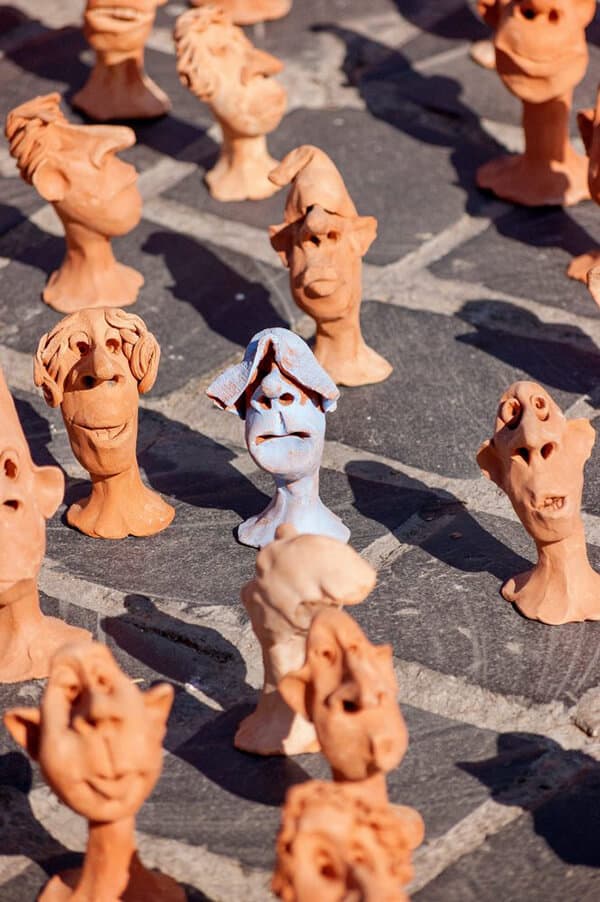Healing old wounds takes time. There is no such thing as a magic pill or quick-fix solution. You know that. But it’s something you long for. Maybe that’s why you’re drawn to the idea of finding the one thing that will finally help you think your way out of pain. That will snap you into new ways of behaving and being. For the busy and easily frustrated, you may even think to yourself, “If only I could melt away my problems by following 5 easy steps, then I’d be sorted.”
Therapy for Busy Londoners
You’ve probably done some research in your own time. Therapy crosses your mind. You feel yourself gravitate towards the therapy that promises you results with the least amount of pain and in the shortest amount of time. Ideally in 6 sessions or less. Perhaps that’s why practical and solution-focused therapies are so popular. But can they reach the deep wounds that you truly want to heal?
Many types of therapies focus on the cognitive and the behavioural. The rational, left side of the brain and the way you behave. You can learn or unlearn any unhelpful way of thinking or behaving. Once you understand the way you think and the way you act, you can change it by applying your newfound learning. What’s so difficult about that?
Getting to the Heart of Emotions
Remember, you’re human. You have feelings. Your emotions can take over at any time. Especially when something unexpected happens. Perhaps a trauma of some sort. And then everything stored in your knowledge bank gets thrown out the window. When this happens, you somehow forget everything you’ve learned. What you know to be the ‘right way’ to act and behave does not apply anymore. In fact, it’s completely inaccessible. All that matters is how you feel.
Your emotions are complex and can drive you to think and act in ways that feel out of your control. How you feel accounts for how you think and behave. Your emotions can no longer be ignored. If you’re wanting deeper healing, start with getting to know your emotions.
How Dramatherapy Works
Dramatherapy is a one-of-a-kind therapy that helps you listen deeply to your emotions. It fuses drama and theatre with therapy. It’s creative and expressive. You get to know yourself. So that you’re less likely to be caught off guard by your sadness, anger or fear.
Dramatherapy goes beyond role playing. What you create and who you become in a Dramatherapy session is not about escapism or moving further away from your problems. It’s about bringing you closer to who you are, the people who you want to feel connected with, and the solutions you’ve been searching for in life.
For example, objects and images are frequently used in Dramatherapy. You can explore your emotions using a set of therapy cards. You can learn better ways of coping and find greater meaning in your healing journey.

As a Dramatherapist working with adults, I use Dramatherapy to help individuals who carry a lot of stress, anxiety and worry in Central London. Those who run around a lot and take on too many responsibilities. Those who forget to take care of themselves and forget to have fun. Those who have a few skeletons in their closet and may even be at risk of developing PTSD.
In Dramatherapy, I often use creative art materials in the sessions. The process of making and creating is therapeutic and healing.

Dramatherapy for Deeper Healing and Change
- Have Fun and Let Go of Stress
As an adult, you have countless responsibilities. When your responsibilities grow, so does the pressure cooker inside you. You’re somewhat of a ticking timebomb about to explode.
When you make space for something fun, something creative – the very act of ‘doing’ and ‘creating’ can be stress-relieving itself. There’s an immediate outlet for you to let go. You get to work stuff out, right then and there.
When you have fun, you smile, laugh and feel positive. That’s because all the feel-good chemicals get released in your brain and body. In Dramatherapy – fun is allowed and encouraged. You get to work with your hands and your body. You bring your whole self into action.
- Get to Know Yourself
“Who am I?” It sounds like a question you hear from adolescents. However, the same question gets asked no matter how old we get. In times of stress, uncertainty or trauma, we can lose ourselves and find ourselves again and again at many points in life.
When you truly get to know yourself beyond your role within the family, the job you hold, or the presence you have on social media, you become more confident, sure and secure in yourself. Things become clear when you align who you portray yourself to be on the outside with how you feel yourself to be on the inside.
In Dramatherapy, we look at your words, your body language, your expressions. We explore the roles you play and look at new ways of being and becoming. When you see and experience yourself in a different way, your anxiety drops and your confidence soars. It’s easier to find new acceptance in yourself and bring out your best qualities when you’ve had a little taster of what it’s like.
- Slow Down
Our fast-paced society can sometimes send us flying to a screeching halt. You’re probably familiar with this: At first you’re busy and feeling a little overwhelmed. Then you find yourself in some kind of turmoil and it all feels too much. To cope, you shut down and shut out everything and everyone around you. When you come to needing help, you feel desperate and demand solutions that can snap you back into gear.
Like a pot about to boil over, you need to turn down the heat or find a way to let out the steam. To some, therapy may be seen as a last resort, something you only use to put out fires. However, in reality, most people don’t want to reach a point of burnout. When you give yourself the space and time to check in with how you feel, to take a closer look at what’s adding fuel to your fire, you’re in greater control.
Running on overdrive is linked to so many physical and mental health problems. The stress and panic gets trapped in the mind and body. When I use Dramatherapy to help my clients, I notice that when clients participate verbally and non-verbally by talking and engaging in something creative – they seem to release a greater amount of tension held in both the mind and body.
- Connect and Belong
Oftentimes, people reach out and consider therapy when they feel most alone. Even when you have loved ones physically present in your life, something stops you from sharing and connecting with others.
If you find yourself thinking “Nobody can see me, nobody can hear me, nobody cares” – this can feel isolating and may even be an alarm bell for your mental health. When you cut your communication with others because you’re feeling overwhelmed, not wanting to bother or be seen, or you’ve reached a point where you’re physically unable to reach out – that’s risky business if you’re not able to seek support.
Regardless of the issues you bring to therapy, Dramatherapy helps you to actively and consistently work on your communication skills. When you go beyond just talking, you:
- learn new ways to break the ice when approaching difficult topics
- move through communication barriers so you become more comfortable and confident with your feelings, and with sharing these feelings
- feel less alone and be more connected to those you care most about
- Feel Safe, Secure and Strong
We all want to be in a place where we feel safe, secure and strong. When something on the outside shakes the very depths of who we are, how we feel, how we think and how we act – it can leave us feeling broken.
People who feel exposed and vulnerable at this stage cope in different ways. Oftentimes, I see people avoiding the very pain that’s brought them to therapy. For example, they discover something they don’t like about themselves or uncover deeper pain buried in childhood trauma.
Even though you want to reach that profound moment of realisation so you can move past the pain or grief, the human part of you that comes face-to-face with this wants to run away and hide. The magic about Dramatherapy is that it can work with deep-rooted trauma in a safe way that keeps you intact and strong.
Have you ever heard of the Greek mythology “Medusa”, a snake-haired monster who had the power to turn anyone who looked at her into stone? Perhaps that’s how you feel if you were to face your demons head-on. Only Perseus, the son of the Greek God Zeus, cleverly defeated her by using his sword and shield’s reflection to guide him safely into victory. Dramatherapy does the same: if you’re not ready or able to face your inner-demons directly, you have the safety of using different tools and materials. Dramatherapy works well with trauma and PTSD, and helps prevent re-traumatisation.
International Dramatherapy Week
It’s the first International Dramatherapy Week (21st-27th October 2019). Around the world this week, The World Alliance of Dramatherapy, showcases various Dramatherapy events and workshops. To learn more about how Dramatherapy promotes change and healing in other countries, follow #dtweek2019.
If you are ready to embrace deeper healing and are looking for mental health support, I can help.
Get started with a free 20 minute phone consultation. Let’s chat.
If you have any requests for a blog post, please feel free to send your questions, comments or ideas to: jamie@ytherapy.com
Please note that this blog is meant to be educational and should not be a substitute for therapy.
If you would like to enquire about therapy, please contact me or book an appointment: https://ytherapy.com/book-an-appointment/

